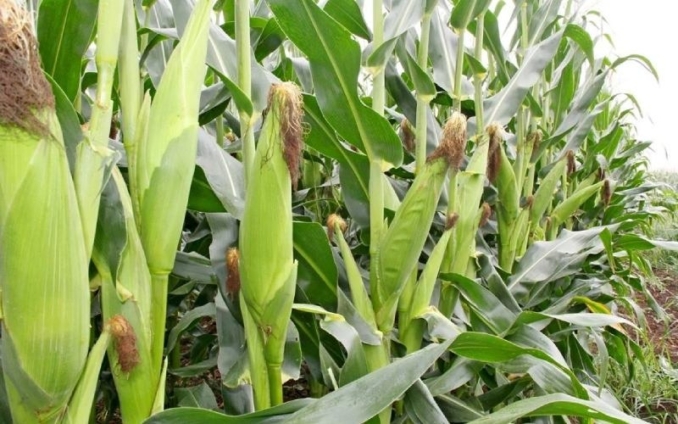The Executive Director of the Peasant Farmers Association of Ghana, Bismark Nortey, has urged the government to implement measures that will protect farmers in light of the recent ban on the exportation of cereals and grains.
On Monday, August 26, the government announced an immediate ban on the export of key grains, including maize, rice, and soybean in response to the ongoing dry spell that has devastated agricultural production in eight regions.
According to the Minister for Food and Agriculture, Bryan Acheampong, this measure will ensure food security in the country.
"With immediate effect, the government is placing a ban on the export of grains including maize, rice, and soybean until the situation normalises," he said.
Read also: Dry spell: Government bans export of grains with immediate effect
But speaking on Joy FM’s Super Morning Show, Mr Nortey emphasised the need for the government to ensure that farmers can sell their produce at competitive prices despite the export restrictions.
“The decision to ban the exportation of cereals and grains is not new. In 2022, the government took a similar position, which had a very negative effect on farmers,” he said on Wednesday.
Mr Nortey explained that when there are no restrictions on grain exports, farmers benefit from a broader range of buyers, including those from neighbouring countries.
This competition helps farmers to secure better prices for their produce, however, with the current export ban, farmers face a limited pool of buyers and are therefore unable to recover their investment.
“The challenge is that because the buyers now know that the farmers’ options are limited, they tend to dictate the price. Farmers, desperate to sell, are forced to accept these low prices,” he explained.
He noted that this situation mirrors the experience farmers had in 2022, where the export ban led to significant financial losses.
On the back of this, Mr Nortey called on the government to learn from past experiences and ensure that this new ban does not result in similar hardships for farmers.
“If the government is putting a ban on export, then the best thing is to insulate the farmers from experiencing those bad experiences from the past,” he urged.
Latest Stories
-
Porter remanded over stealing, destroying metal guardrails at Obetsebi Lamptey overpass
54 minutes -
5 remanded over GH¢2.3m and $191,900 fake notes
1 hour -
Trump says Israel and Iran have agreed to ‘complete and total’ ceasefire
1 hour -
Cedi holds firm against dollar; one dollar equals GH¢12.15 at forex bureaux
1 hour -
OIC applauds King Mohammed VI’s leadership in safeguarding Al Quds
1 hour -
Joyful Ethiopians and Eritreans embrace at rare border reopening
1 hour -
Police officers charged with murder of Kenyan blogger
2 hours -
US Tennis star Katrina Adams launches “Own The Arena” book in Accra
2 hours -
US Supreme Court allows Trump to resume deportations to third countries
2 hours -
US says Kilmar Ábrego García will ‘never go free’ after judge orders his release
2 hours -
Ignore Kennedy Agyapong’s claims; MMDCEs support not sponsored – Bawumia’s spokesman
2 hours -
Daily insight for CEOs: Strategic Agility – Thriving amid constant change
2 hours -
Mother and children suffer severe burns, appeal for support for life-saving treatment
2 hours -
‘Flower Power; An Arewa Story from the South’ opens at Worldfaze in Accra
3 hours -
KNUST researchers highlight potential areas for future research in Heterotis (Supaku) culture
3 hours

